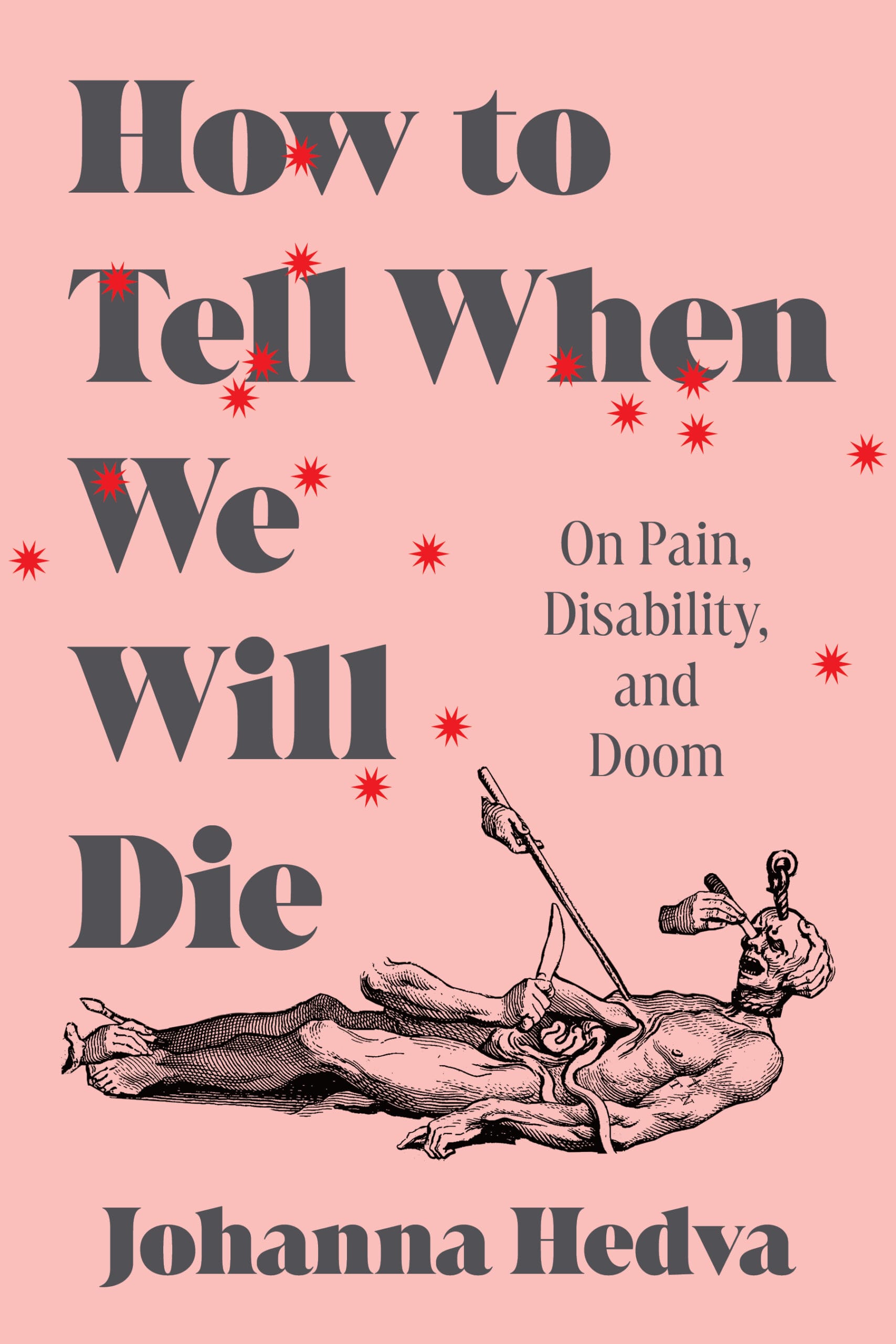
Written by Stephen Hong Sohn
Edited by Lizzy Sobiesk
I’ve been on a bit of a tear with Johanna Hedva’s work. They have had a particularly prolific set of years, returning to us with a creative nonfictional publication How to Tell When We Will Die (Zando, 2024). Let’s let the marketing description give us some key information: “In the wake of the 2014 Ferguson riots, and sick with a chronic condition that rendered them housebound, Johanna Hedva turned to the page to ask: How do you throw a brick through the window of a bank if you can’t get out of bed? It was not long before this essay, ‘Sick Woman Theory,’ became a seminal work on disability, because in reframing illness as not just a biological experience but a social one, Hedva argues that under capitalism—a system that limits our worth to the productivity of our bodies—we must reach for the revolutionary act of caring for ourselves and others. How to Tell When We Will Die expands upon Hedva’s paradigm-shifting perspective in a series of slyly subversive and razor-sharp essays that range from the theoretical to the personal—from Deborah Levy and Susan Sontag to wrestling, kink, mysticism, death, and the color yellow. Drawing from their experiences with America’s byzantine healthcare system, and considering archetypes they call The Psychotic Woman, The Freak, and The Hag in Charge, Hedva offers a bracing indictment of the politics that exploit sickness—relying on and fueling ableism—to the detriment of us all.”
While the description starts with “Sick Woman Theory,” the collection of nonfictional pieces certainly exceeds that particular piece. Indeed, if anything, Hedva is a writer who wants us to know “Sick Woman Theory” is just one small aspect of their collective writings, even if it happens to be one of the ones that has been the most well-read. Perhaps what is most crucial about engaging Hedva’s work on disability writings is the complications that arose in light of their popular dissemination. Hedva would be invited to many talks in light of their work’s impact, but the problem is of course access: Hedva is not always given the things they need to be able to go and do these talks, with entities supposedly interested in things like disability and impairment. To be sure, Hedva is not only critical. Indeed, they rightly celebrate the shift in thinking that has occurred, especially over the last decade on things related to disability, impairment, care work, access, and interdependence, but this publication is a clear clarion call that more must be done. Perhaps, one of the strongest messages to come out of this work is the problems under which the disabled must survive under neoliberal capitalism. How can the body that is in constant pain or one that cannot access certain forms of transit or be able to move independently be able to produce the labor that is necessary under neoliberal capitalism? Who cares for this kind of person, this kind of body, when it is one that may incur debt, more work, and requires further support? These questions are precisely that ones that Hedva so polemically telescopes for readers. Amongst such politically engaged writings, Hedva also graces us with some narratively luminescent pieces. There is a section on a complicated love affair with a drug addict, another poignant one that conveys the experience of grief that Hedva experiences after their mother dies, and finally, perhaps my favorite, Hedva’s trip to the island of Hydra where they commune with a local priestess. The piece on Hedva’s mother was particularly complicated given that their relationship was strained over time, given their mother’s abuse. The final thing I’ll end on how multifaceted this work is. Inasmuch as you’ll find out so much about care and care work, disability and impairment, Hedva gives us much to consider as a mixed-race Korean American, as someone involved in kink and the way that kink destabilizes power; Hedva is obviously well-read, an organic intellectual, and someone who can as easily discuss the uneven-ness of Sontag’s work alongside the narrative dynamics of pop culture horror movies. In this mixture of high and low, Hedva’s work glitters with the might of a cultural kaleidoscope.
Buy the Book Here